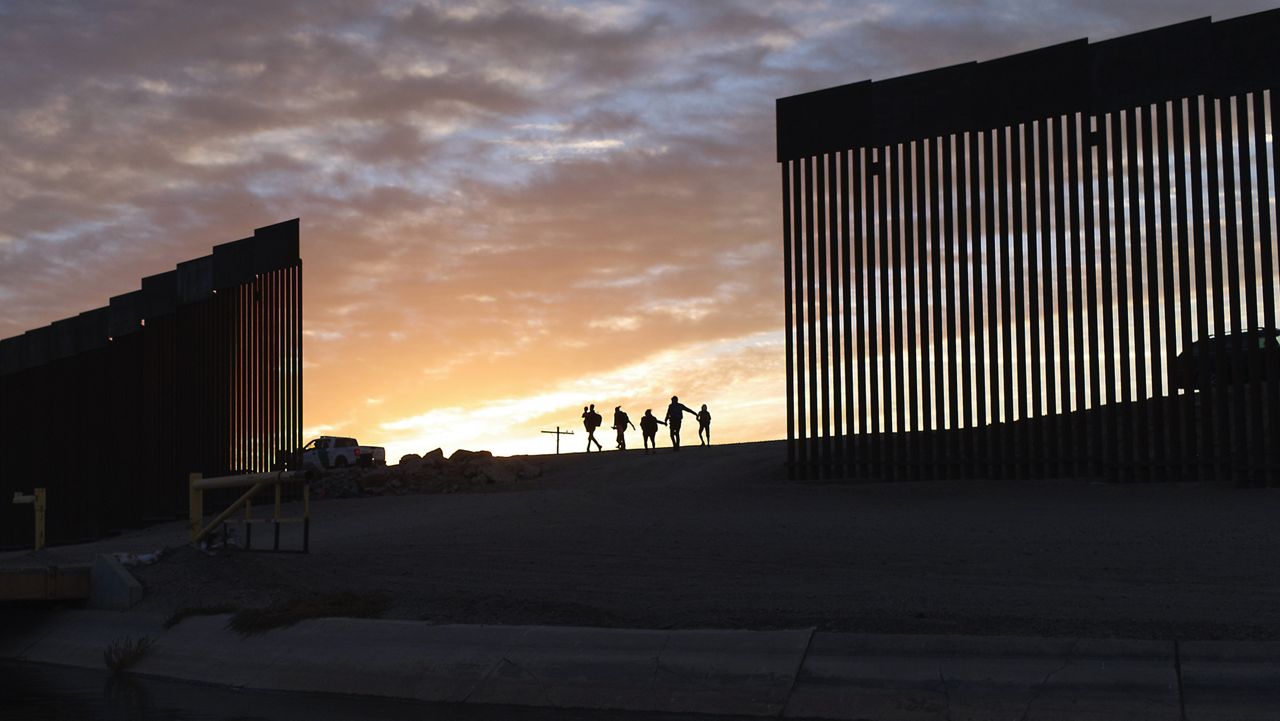TALLAHASSEE, Fla. — A bill characterized by supporters as the strongest, state-led anti-illegal immigration measures now heads to Gov. Ron DeSantis after passing the Florida House by a 83-36 vote on Tuesday.
What You Need To Know
- A bill characterized by supporters as the strongest, state-led anti-illegal immigration measures now heads to Gov. Ron DeSantis
- The immigration bill passed the Florida House by a 83-36 vote on Tuesday.
- SB 1718 passed the Florida Senate last week with a vote of 27-10
SB 1718 passed the Florida Senate last week with a vote of 27-10.
The sponsor of the bill, Sen. Blaise Ingoglia (R-District 11), said he hopes the bill will put pressure on the federal government to fix what he says is a broken immigration system. He also said he hopes other states, like Texas, will move similar bills forward.
“To date, more than 6.3 million illegal immigrants have crossed the Southern Border and the Biden Administration has consistently turned a blind eye,” said Ingoglia. “Today, the Florida House and Senate made history with the passage of the strongest, state-led anti-illegal immigration bill meant to counter the mounting border crisis, and making Florida the model for the nation on how to safeguard its residents. Thank you Rep. Kiyan Michael and Rep. Berny Jacques for standing on the side of law and order, and protecting Floridians when their Commander in Chief has failed to do so.”
One of the most controversial parts of the bill would criminalize those who transport people living in the country illegally.
Opponents fear what that could mean for children of those living in the country illegally.
Silvia Ruiz, a community organizer at the Hope CommUnity Centre in Apopka, has temporary resident status through DACA (Deferred Action for Childhood Arrivals), but she is worried that the proposed bill could prevent her from getting her family members who are in the United States illegally to necessary appointments.
If signed, the bill would go into effect on July 1.
Once signed into law, SB 1718 Immigration will:
Requires all public employers use E-Verify, all private employers with 25 or more employees use E-Verify, and DEO to fine an employer that hires illegal immigrants $1,000 per worker, per day until the employer proves compliance with E-Verify;
Enhanced penalties and license suspension or revocation for employers knowingly hiring unauthorized aliens;
Enhanced criminal penalties for those caught engaging in the human smuggling of illegal immigrants, and makes human smuggling a second-degree felony;
Provides the Florida Department of Law Enforcement with the necessary authority to coordinate with and provide assistance to the Federal Government in the enforcement of federal immigration laws, and response to immigration enforcement incidents within or affecting Florida;
Florida will no longer recognize driver’s licenses exclusively issued to undocumented immigrants, and requires the Department of Highway Safety and Motor Vehicles (DHSMV) to issue citations and maintain a list of out‑of‑state classes of driver licenses that are invalid;
Prohibits a county or municipality from providing funds to issue community identification cards for individuals not in the country lawfully;
Requires persons who are in law enforcement custody and have been issued an immigration detainer would be required to submit DNA to the statewide database;
Requires hospitals accepting Medicaid to collect data on the citizenship status of patients and report to the Agency of Health Care Administration (AHCA). The report may not disclose patient names or any other personal identifying information;
Removes the authority for unauthorized immigrants to be admitted to the Florida Bar;
Provides a $12 million nonrecurring appropriation to the Division of Emergency Management for the Unauthorized Alien Transport Program.
Meanwhile, U.S. and Mexican officials have agreed on new immigration policies meant to deter illegal border crossings while also opening up other pathways ahead of an expected increase in migrants following the end of pandemic restrictions next week.
Under the agreement, Mexico will continue to accept migrants from Venezuela, Haiti, Cuba and Nicaragua who are turned away at the border, and up to 100,000 individuals from Honduras, Guatemala, and El Salvador who have family in the U.S. will be eligible to live and work there.
Mexico's support is critical to any push by the U.S. to clamp down at the southern border, particularly as migrants from nations from as far away as Haiti are making the trek on foot up through Mexico, and are not easily returned back to their home countries.
With Mexico now behind the U.S., plus an announcement Tuesday that 1,500 active-duty U.S. troops are deploying south for administrative support, and other crackdown measures in place, border officials believe they may be able to manage overcrowding and other possible issues that might arise once the COVID-19 restrictions end.



